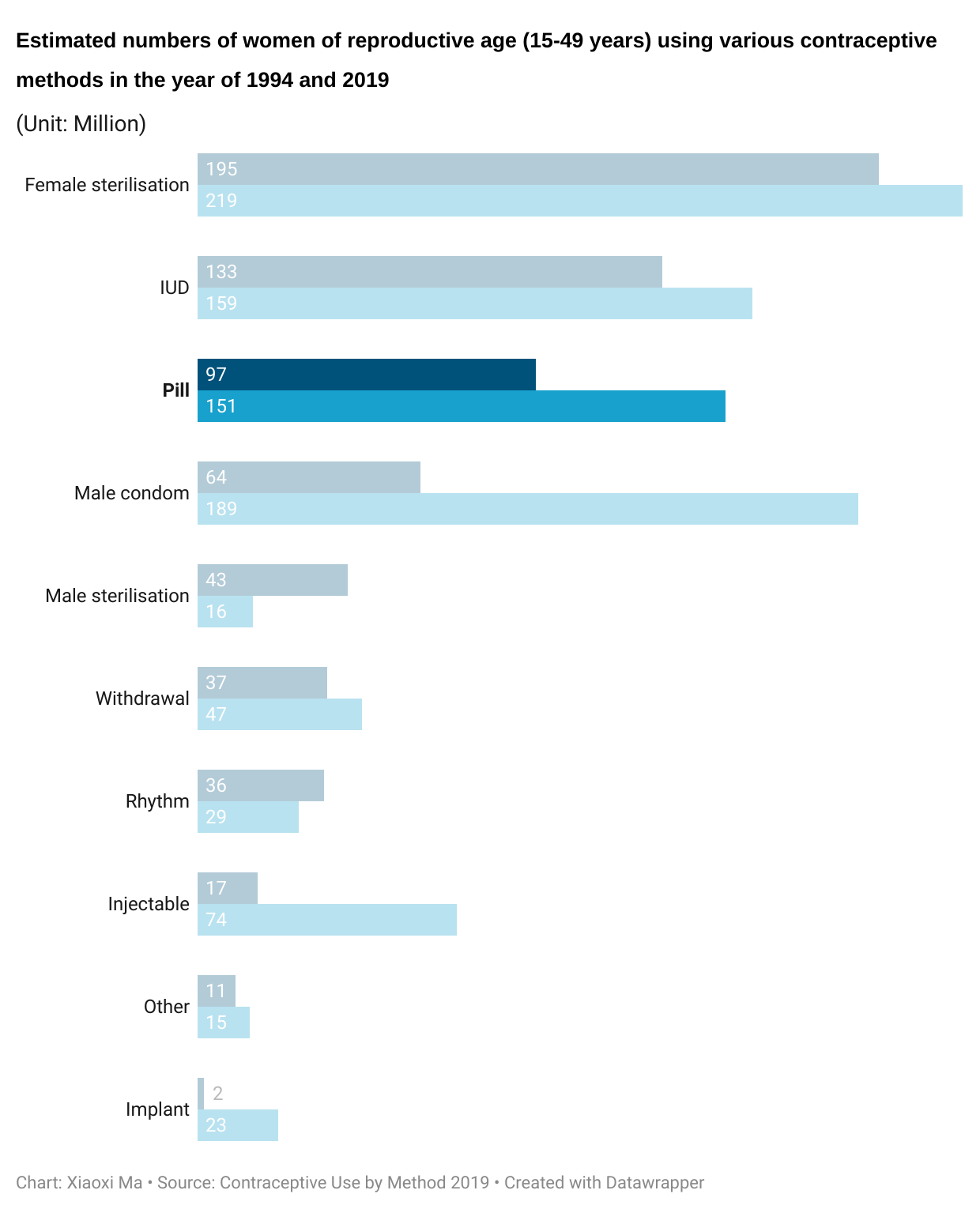In 2016, a study from Denmark did a nationwide research looking at the associations between the use of hormonal contraception and mood disturbances.
The study included more than one million women who are using the pill. “All women and adolescents aged 15 to 34 years who were living in Denmark were followed up from January 1, 2000, to December 2013,” as they wrote in the report, and all of these women’s health and prescription records data were collected from 1995 to 2013.
The study found a clear correlation between using the pill for birth control and depression among both adults and adolescents.
The study use two indexes, "First Use of Antidepressants" and "First Diagnosis of Depression" to associate the risk of depression.
The charts below show how the risk of depression can be increased by using different types of pills.


For all women, rates of depression climbed between 20% and 80%.
But the number for adolescents are more striking, climbed between 20% and 160%.


To break it down, here's some basic information that might help you understand it better.
What is the birth control pill?
According to Planned Parenthood,
Birth control pills are a “kind of medicine with hormones.”
They come in a pack, and users of the pills need to take one pill at the same time every day.
If you use the pill “perfectly,”
which means you strictly follow the instructions and
take the pill at the same time everyday, then it’s 99% effective. In reality, it is hard to use it perfectly, so the pill is about 93% effective which means about seven out of one hundred pill users get pregnant each year.
Two types of the pills
• Combination pills or combined oral contraceptives, or COCs. COCs have both estrogen and progestin. They are the most common types of the pills.
• Progestin-only pills, or POPs or mini pills, which only have progestin.
How does the pill work?
The hormones in the pill stop ovulation, according to Planned Parenthood. Ovulation is the process in which a mature egg is released from the ovary, and if the ovulation is stopped, there’s no egg being released therefore no pregnancy.
Hormones in the pills -- estrogen and progestin, what are those?
Estrogen and progesterone are the two predominant sex hormones for women, according to “This is your brain on birth control : the surprising science of women, hormones, and the law of unintended consequences” by Sarah Hill, a research psychologist and professor with expertise in women, health, and sexual psychology.
Estrogen coordinates conception, which happens in the follicular phase of women’s monthly cycle. It is responsible for “most of the things that we think about when we think about what makes women women.”
Progesterone coordinates implantation, which happens in the luteal phase of women’s monthly cycle, which starts after ovulation. When progesterone is dominant, women tend to feel “hungrier, sleepier, and more relaxed. ”
Progestin is a synthetic form of progesterone that is similar to the hormone produced naturally by the body, according to
American College of Obstetricians and Gynecologists.
Hormonal effects are powerful, what does it control?
According to an article
from Massachusetts General Hospital (MGH) Center for Women’s Mental Health, potential side effects of the pills include bloating, breast tenderness, and weight gain, and some users might experience depression or mood swings.
From the book we mentioned above, the author mentions that hormones influence “billions of cells at once, and exactly what they do to each of those billions of cells differs somewhat from woman to woman.”
Okay, how might my brain be affected when on the pill? Can it cause mood disorders like depression and anxiety?
According to a study called
“Depression as a side effect of contraceptive pill,”
estrogen appears to have a positive effect on depression, while progestins have a varied effect including worsening depression, and this depends on the type and dose of progesterone.
According to MGH,
clinically they find some women report depression or mood swings with the pills.
This group of women typically develop moderate to severe depressive symptoms shortly
after taking the pills and usually stop taking it very quickly -- before finishing the first pack. “While this is what we observe clinically, it is not a common side effect but is severe enough to lead to discontinuation.”





